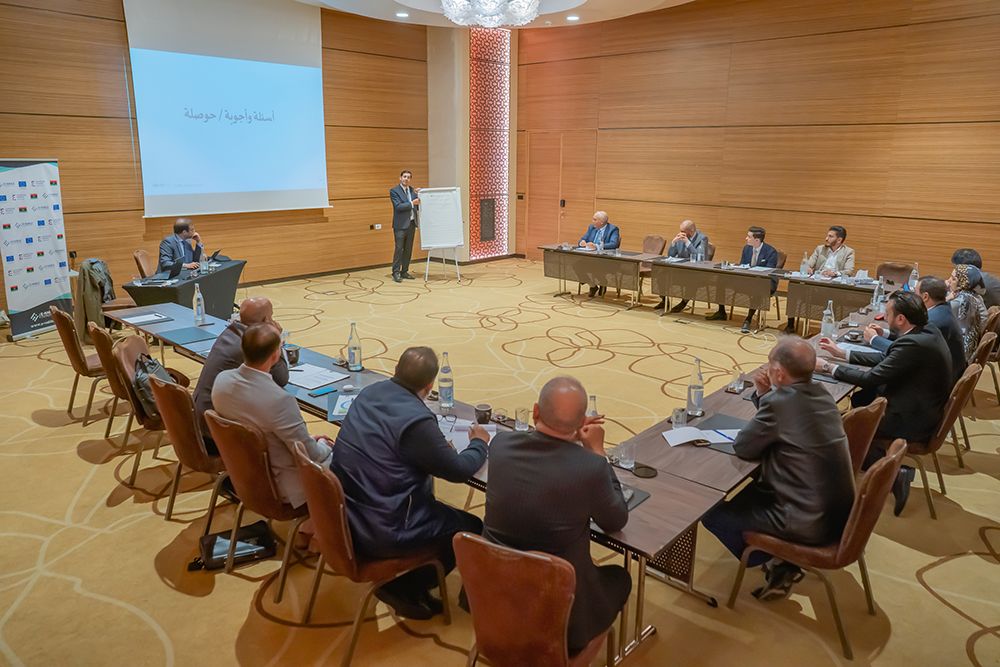News
Archive
- February 2025
- January 2025
- December 2024
- November 2024
- October 2024
- September 2024
- August 2024
- July 2024
- June 2024
- May 2024
- April 2024
- March 2024
- February 2024
- January 2024
- December 2023
- November 2023
- October 2023
- September 2023
- August 2023
- July 2023
- June 2023
- May 2023
- March 2023
- February 2023
- October 2022
- August 2022
- July 2022
- June 2022
- May 2022
- April 2022
Shared Success Potential in Libya: New Public-Private Partnerships Training
In cooperation with the Ministry of Economy and Trade, a new training program for capacity building on partnerships between the public and private sectors was held in Tunis during the period of the 18th-20th of December 2023, aiming to enable participants to understand the frameworks, foundations, and types of partnerships between the public and private sectors, and methods of managing them, in the presence of representatives from the ministries and government institutions concerned with the public-private partnership program.
This training program comes within the E-nable project funded by the European Union and implemented by Expertise France in cooperation with Libyan partners.
The training covers various topics, including the different types of public-private partnerships, their foundations, and benefits, and focuses on the areas and priorities of the public-private partnership. It also includes policy and financing aspects and addresses public-private partnerships’ legal and regulatory framework, including developing legal agreements and contracts for partnership projects.
The training also addresses how to develop a suitable environment for implementing partnership projects and covers project structuring and risk management while presenting suggested models and examining the methods used to monitor and evaluate the performance of partnership projects. This training has been preceded by a similar one implemented in Tripoli from the 3rd until the 7th of December, covering the same topics with the participation of different relevant institutions and participants.
The public-private partnership project aims to strengthen the collaboration between the two sectors to contribute to the diversification of the Libyan economy by implementing projects of common interest, improving the management and competitive efficiency of the economy, reducing the burden on the public sector, and providing new job opportunities.
The entities participating in the training include the Ministry of Economy and Trade, the Ministry of Health, the Ministry of Technical and Vocational Education, the National Economic and Social Development Board, the General Electricity Company, the General Company for Water and Sanitation, the Renewable Energy Authority, the Economic and Social Development Fund, the General Authority for Investment Promotion Affairs and Privatization, and the Municipality of Tripoli Center.

